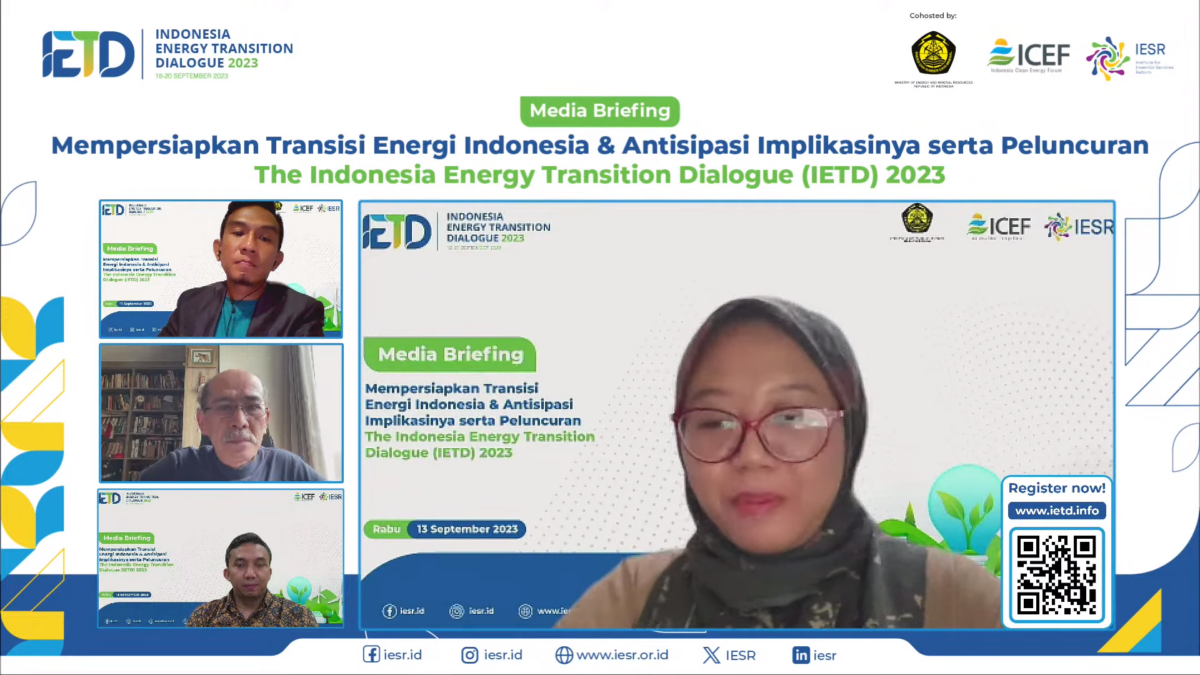Jakarta, 13 September 2023 – The energy transition is increasingly inevitable as global climate commitments strengthen. The energy sector is one of the sectors highlighted because of its intense emissions. More or less the same thing also happened in Indonesia. The Indonesian Government’s commitment to achieving net zero emission status is accompanied by a set of strategies and plans, one of which is intervention in the energy sector, especially the power generation.
Fabby Tumiwa, Executive Director of the Institute for Essential Services Reform, explained that the electricity sector is a low-hanging fruit sector or a sector that is quite easy to decarbonize.
“A successful transition in the electricity sector will accelerate the transition in other sectors such as industry and transportation,” explained Fabby in a webinar entitled “Preparing for Indonesia’s Energy Transition & Anticipating Its Implications and Launching the Indonesia Energy Transition Dialogue”.
The Energy Transformation Program Manager, Institute for Essential Services Reform, Deon Arinaldo, added that the electricity sector has a solid enough supporting infrastructure to make the transition.
“The electricity sector provides wide-open access to decarbonization opportunities. “The technology is already available, there is potential for international funding such as JETP, there is already a supporting policy framework such as Presidential Decree 112/2022,” said Deon.
This is in line with the strategy prepared by the Ministry of Energy and Mineral Resources (ESDM). Gigih Udi Atmo, Director of Energy Conservation, Ministry of Energy and Mineral Resources stated that the government’s priority is also the electricity sector.
“In the road map that we have drawn up, the power sector will have zero emissions before 2060, between 2057-2058. The rest is from the hard-to-abate sectors, such as industry and transportation,” he said.
The existence of the will and policy support for the transition is a good thing, but this is not enough by Adam Adiwinata, ASEAN Energy Transition Outlook Consultant, IRENA.
“The effectiveness and consistency of policies must be considered so that the energy transition occurs massively and accelerates. “Indonesia must be agile in looking at a policy, whether the policy can be improved or implemented to support the energy transition in Indonesia,” explained Adam.
A consistent policy framework is one of the enabling environment points to encourage massive penetration of renewable energy. This was stated by economist Faisal Basri, who is also a member of the Indonesia Clean Energy Forum.
“Often, Indonesia’s enabling environment makes it difficult to obtain funding. Policies that are prone to change make institutions or countries hesitate to give money to Indonesia,” said Faisal.
Faisal also added that commitments such as the implementation of a carbon tax which continue to be postponed show Indonesia’s weak commitment to the energy transition.

